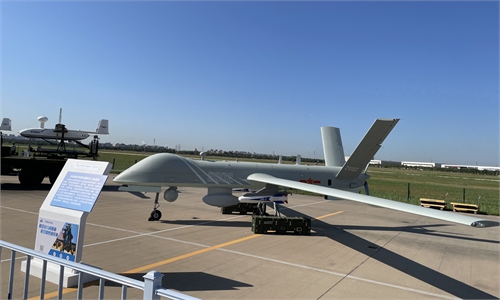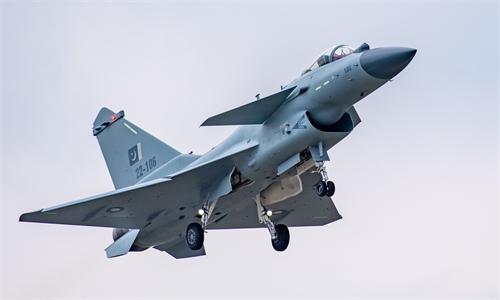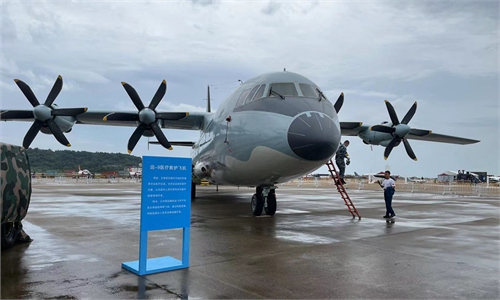PLA ground forces exercise deters Taiwan secessionists as long-range rockets, missiles, amphibious troops join 'unusual' drills around island
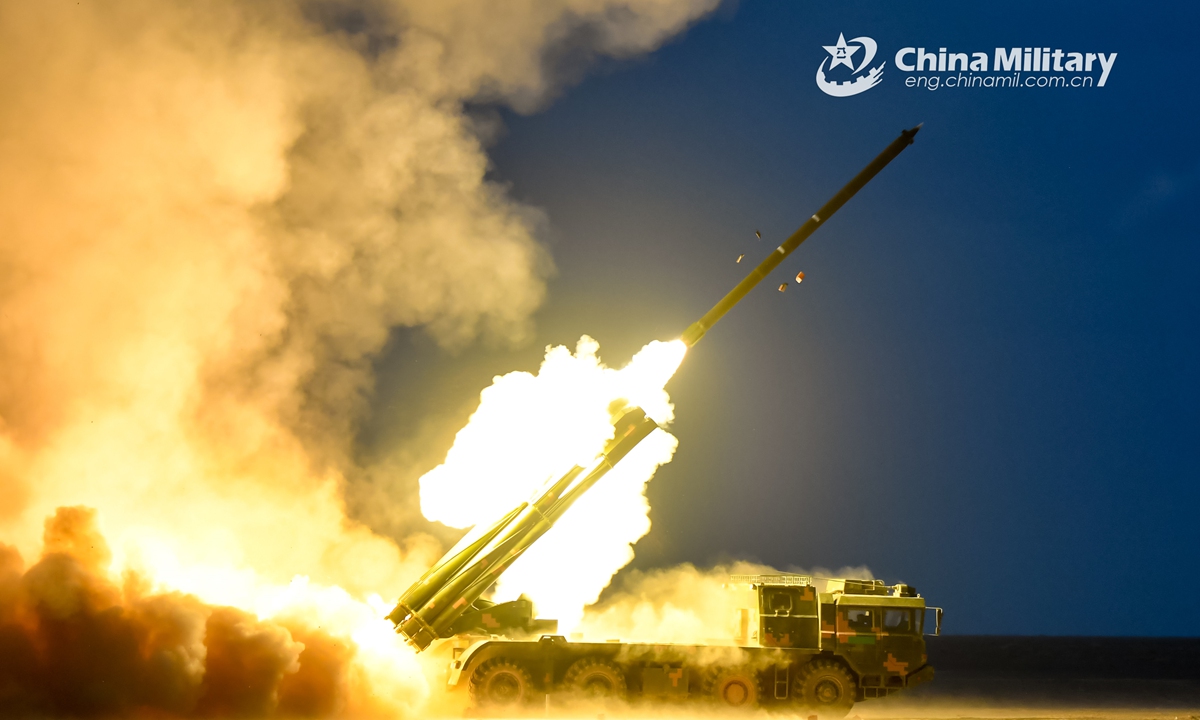
A PHL-03 long-range multiple launch rocket system (LRMLRS) attached to an artillery brigade under the PLA 74th Group Army fires rockets at simulate target during a night raid exercise in an undisclosed desert area of northwest China on July 28, 2021. (eng.chinamil.com.cn/Photo by Huang Hai)
The Chinese People's Liberation Army (PLA) reportedly conducted a ground exercise on the mainland side of the Taiwan Straits on Sunday, as the defense authority on the island of Taiwan became aware of the participation of long-range rockets, conventional missiles and amphibious troops in the PLA drills around the island in addition to previously detected aircraft and vessels.The intense PLA exercises over the past two weeks, which featured a record-breaking numbers of vessels and aircraft as well as new training methods that featured an aircraft carrier group, sends a stern warning to "Taiwan independence" secessionist forces and external interference forces, experts said.
On Sunday morning, armed forces on the island of Taiwan detected PLA military drills at Dacheng Bay located in Dongshan Island in East China's Fujian Province featuring undisclosed numbers of aircraft, vessels and ground troops, the defense authority on the island said in a press release on the day.
Dacheng Bay is a PLA amphibious landing training site that faces the island of Taiwan from the mainland side, according to media reports on the island.
The defense authority on the island of Taiwan has been reporting daily PLA aircraft and vessel activities over the past few years, but only started reporting PLA ground activities on Thursday, when it said for the first time that it had spotted the PLA Army's long-range rocket artilleries, Rocket Force missiles and ground activities around Dacheng Bay.
Analysts on the island speculated that the exercise could feature amphibious landing training and follow-up tactical maneuvers.
Chiu Kuo-cheng, the leader of defense authority on the island, said on Friday that the recent movements by the PLA are "highly unusual," media reported.
September saw the PLA break the record for the number of daily aircraft sorties and vessel activities around the island of Taiwan, as the island spotted 103 PLA warplanes on September 17 and 20 PLA warships on September 11. Also in mid-September, the Shandong aircraft carrier group held a five-day exercise in West Pacific waters to the east of the island, joined by another group of eight PLA warships.
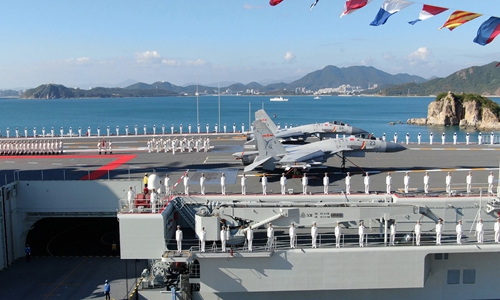
China's first domestically built aircraft carrier, the Shandong. (Xinhua/Li Gang)
During the exercises, the aircraft carrier Shandong formed a group with vessels from the PLA Southern Theater Command and played as a blue team, while other warships and Air Force units from the PLA Eastern Theater Command played as a defensive red team, Chiu said.Previous far-sea exercises by PLA aircraft carriers often lasted for about a month and did not feature as many warships, so the latest drill likely featured new tactics or a new form of training, observers noted.
The PLA has not announced the exercises or their details as of press time, but Senior Colonel Wu Qian, a spokesperson at China's Ministry of National Defense, said at a regular press conference on August 31 that there is no need for the PLA to pre-announce countermeasures against collusions between the "Taiwan independence" secessionist forces and external forces.
The new developments in the PLA drills around the island of Taiwan display the increasing level of the PLA's combat readiness and its capability in controlling the situation in the Taiwan Straits, a Chinese mainland military expert who requested anonymity told the Global Times on Sunday.
They also serve as warnings and deterrence against the "Taiwan independence" secessionist forces and external interference forces, the expert said.
Experts also warned of US involvement in the recent information releases on PLA activities.
The US likely provided intelligence to the armed forces on the island of Taiwan, so the latter learned more about PLA ground deployments and activities, Song Zhongping, a Chinese mainland military expert and TV commentator, told the Global Times on Sunday.
While such intelligence sharing does not pose an immediate threat to the PLA, it serves to hype the "China military threat" theory and incite the island of Taiwan to purchase more long-range guided weapons that turn the island to a powder keg, Song said.

